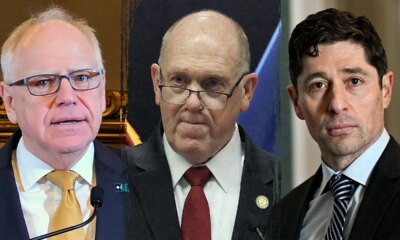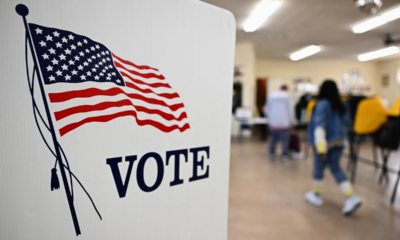Minneapolis, MN
Minneapolis is about to kill ride-sharing

Just last month, Seattle’s disastrous attempt to enact a minimum wage for app-based food delivery drivers was in the news. The result was $26 coffees, city residents deleting their delivery apps, and drivers themselves seeing their earnings drop by half. Now, the Minneapolis City Council has decided to join the fray in the multifront progressive war against the gig economy—and this time, the outcome could be even worse.
In March, the Minneapolis City Council enacted an ordinance that creates a minimum wage rate for ride-share drivers in the city. It does so via a per-minute and per-mile calculation, which is currently set at $1.40 per mile and $0.51 per minute. It also sets a floor of $5 if the trip is short and otherwise would cost below that level.
The council claims it enacted the ordinance to ensure that ride-share drivers in the city were paid at an amount analogous to the city’s $15.57 per hour minimum wage. Even putting aside the traditional economic arguments against the minimum wage—see California’s recent fast-food minimum wage law as Exhibit A—the council’s logic fails on its own terms. The day after the city council initially passed the ordinance, the state Department of Labor and Industry released a report showing that a lower $0.89 per mile and $0.49 per minute rate would be sufficient to make driver pay equivalent to the $15.57 minimum wage.
As a result, the ordinance was immediately vetoed by Minneapolis’ liberal mayor—the second time in two years the mayor has vetoed such a measure from the council—only for the council to then override the veto a week later. While the council did not have access to the state’s report for the first vote, it had over a week to review it before the veto-override vote. Incredibly, one city council member even suggested that the state’s report somehow convinced her to change her vote from “no” to “yes” on the minimum wage between the initial vote and the override vote.
In response to the council’s override, ride-sharing companies like Uber and Lyft have announced they are planning to pull out of the Minneapolis market entirely unless the council reverses course. The ride-share companies originally were set to leave the city on May 1 when the ordinance went into effect, but after a last-minute agreement by the council to delay the ordinance’s effective date to July 1, the ride-share companies are in wait-and-see mode.
If the council refuses to back down by July, it will cause even deeper ramifications for city residents than the higher food prices that Seattleites saw in the wake of their aforementioned minimum wage hike for delivery drivers. The ride-share companies have indicated that while they would support the minimum compensation levels proposed in the state’s study, the city’s higher rates are cost-prohibitive.
Panic has set in among many lawmakers at the state capital, with some calling for the Legislature to preempt the Minneapolis ordinance. Democratic Gov. Tim Walz, who previously vetoed a statewide version of a minimum wage bill for ride-share drivers, has stated that he is “deeply concerned” about the prospect of losing ride-sharing services in the Twin Cities.
The concern is well-founded since a ride-share pullout would disproportionately impact the city’s senior citizens and disabled residents who often rely on these services to survive. Accordingly, advocates from the Minnesota chapter of the National Federation of the Blind, the Minneapolis Advisory Committee on Aging, and the Minneapolis Advisory Committee on People with Disabilities have all expressed opposition to the ordinance.
The possibility of losing ride-sharing has also created concern about the potential impact on the city’s drunk driving rates. Evidence has linked the availability of ride-sharing to lower incidents of alcohol-impaired driving and alcohol-related car accidents, underscoring just how high the stakes may be.
Moreover, if the city council’s move goes unchecked, deleterious minimum wage hikes will inevitably spread to other parts of the Twin Cities’ gig economy. The Minneapolis ordinance is limited to ride-share drivers for now, but if the past is prologue, food delivery drivers are next.
Seattle first passed a minimum wage rule for ride-share drivers in 2020, only to follow that up with this year’s food delivery minimum rate. New York City likewise followed a similar two-step trajectory of locking in minimum rates for ride-share drivers before moving on to food delivery drivers years later. Given that many ride-share drivers double as food delivery drivers—often on the same app—the progressive pressure to expand the minimum wage to delivery may be substantial.
Also of note, the Minnesota Legislature is considering a bill that would make it more difficult to be classified as an independent contractor in the state, creating yet more foreboding storm clouds on the horizon for gig work.
Despite the fresh lessons from the Seattle food delivery debacle, Minneapolis council members appear oblivious to the on-the-ground reality. Ironically, it was none other than Karl Marx who famously declared that history repeats itself “first as tragedy, second as farce.” The city council—which contains several openly socialist members—should pay more heed to its intellectual forefather.

Minneapolis, MN
Sen. John Curtis says DHS secretary ‘lost’ trust following Minneapolis shooting

SALT LAKE CITY — Homeland Security Secretary Kristi Noem’s response to a fatal shooting by federal agents in Minneapolis will “forever undermine trust” with Americans, Utah Sen. John Curtis said Thursday.
Speaking to reporters at the state Capitol, Curtis expanded on his criticism of Noem after previously calling her response to the Jan. 24 shooting of 37-year-old Alex Pretti “premature.” Noem initially said Pretti, a U.S. citizen, committed an “act of domestic terrorism” and planned to kill officers, even though videos showed him holding a cellphone, not a weapon.
Curtis quickly joined others in calling for an independent investigation into the shooting.
“I think it will forever undermine trust that she has with the American people,” Curtis said of Noem’s response. “Now, at this point, I think it’s up to the president to see if that’s salvageable, but I do think a lot of trust was lost, and as you know, trust is very hard to rebuild.”
The senator’s comments came amid a partial government shutdown impacting the Department of Homeland Security, which Noem oversees. Democrats are pushing for reforms to immigration enforcement procedures after Pretti and Renée Good, also a U.S. citizen, were fatally shot by agents in Minneapolis last month.
Curtis said he’s still “hopeful” a resolution to end the shutdown can be reached, although he acknowledged negotiations between President Donald Trump and Senate Minority Leader Chuck Schumer appear to have stalled.
The shutdown impacts agencies like the Transportation Security Administration, Federal Emergency Management Agency, U.S. Customs and Border Protection and U.S. Immigration and Customs Enforcement. However, ICE and CBP operations are still funded thanks to the “One Big Beautiful Bill” that passed last year, the Associated Press reported.
“(I’m) really frustrated myself,” Curtis said. “I just do not like shutdowns. There’s nothing good that comes out of a shutdown.”
Curtis said he supports “reasonable reforms” at the Department of Homeland Security, such as better training for agents and scrutinizing how quickly they are being hired. As for Democrats’ demands that ICE agents stop wearing masks in the field, Curtis was less enthusiastic. He said there are known instances of immigration agents being doxxed, with personal information about them and their families publicly posted online.
“It’s easy for me to say this is not just as clean-cut as ‘don’t wear a mask,’” he said.
There have been rumblings that an immigrant detention facility may be coming to Salt Lake City, prompting protests by some Utahns. Curtis said state lawmakers raised that issue with him on Thursday during private meetings, but he has not had any discussions with the Trump administration about it.
“But I’m happy to advocate on behalf of the state and do what’s best for the state,” Curtis added. “Beyond that, I’ve not had conversations.”
Opposition to Trump nominee
Curtis recently announced his opposition to one of Trump’s nominees for a high-ranking State Department position, likely tanking the nomination.
Jeremy Carl was tapped to serve as an assistant secretary of state for International Organizations, but Curtis grilled him during a recent hearing over previous statements Carl had made suggesting that Jewish people focus too much on the Holocaust.
“I’m not convinced that Jeremy Carl is the right person to represent our nation’s best interests in international forums, and I find his anti-Israel views and insensitive remarks about Jews unbecoming of the position for which he has been nominated,” the senator stated last week.
This is the first time Curtis has outright opposed one of Trump’s nominees. But it’s not the first time the freshman senator has raised questions about them. Curtis was reportedly one of several GOP senators who helped sink former Rep. Matt Gaetz’s nomination as attorney general.
Daniel Woodruff, KSL
Curtis also expressed concerns about confirming Pete Hegseth as secretary of defense. Hegseth was accused of sexual assault, heavy drinking, financial mismanagement and other things. Curtis initially said those allegations were “serious,” but he ultimately voted to confirm Hegseth.
Asked on Thursday why he decided to come out so strongly against Carl’s nomination, the senator said: “There’s a difference between concerns and an outright no.”
“I was willing to give a lot of deference to the president in his selection,” Curtis said of Trump’s cabinet nominees. “I think at that point I’m looking for fatal flaws, right? That’s a line I can’t cross. Jeremy Carl, to me, has fatal flaws.”
Curtis added he chose to “speak out early” against Carl.
“I didn’t want this thing to mature and have people question where I was at,” he said. “The longer it goes, the better I actually feel about my decision.”
Curtis talks priorities and AI regulation
Curtis spoke to reporters after meeting with state lawmakers from both parties about his priorities in Congress that include tax relief, cutting regulation around housing and transportation, streamlining the development of clean energy and protecting children online.
As the Utah Legislature weighs several bills this session dealing with artificial intelligence, the Trump administration is pressuring one state representative to drop his bill requiring AI developers to implement plans to keep children safe while using the emerging technology. Actor Joseph Gordon-Levitt even came to the Capitol to speak in favor of the bill.
“We are categorically opposed to Utah HB286 and view it as an unfixable bill that goes against the administration’s AI agenda,” a letter from the White House Office of Intergovernmental Affairs reads.
Curtis said Congress is “wrestling” with potential AI regulations.
“I personally think there’s probably a lane for states, and there’s probably a lane for the federal government,” he said. “We need to define that and make sure that everybody is in their lanes.”
Curtis said he’s worried about ceding the technology race to global adversaries but added he thinks there is broad support for regulations aimed at protecting kids.
The Key Takeaways for this article were generated with the assistance of large language models and reviewed by our editorial team. The article, itself, is solely human-written.
Minneapolis, MN
Man sentenced to more than 86 years for Minneapolis triple homicide

A man was sentenced to more than 86 years in prison for a triple homicide that occurred in Minneapolis in October 2024, the Hennepin County Attorney’s Office said.
Earl Bennett, 42, was sentenced for three counts of murder, which will be served consecutively, according to the Hennepin County Attorney’s Office. He was given credit for 478 days already served.
He was also sentenced for illegal firearm possession, which he will serve at the same time as the murder sentences.
Minneapolis police were called to a triple shooting at a homeless encampment near 44th Street and Snelling Avenue on Oct. 27, 2024.
Louis Mitchell Lemons Jr., 32, and Christopher Martell Washington, 38, were pronounced dead at the scene. Samantha Jo Moss, 35, was rushed to the hospital, where she died nearly a week later.
Woman dies nearly a week after triple shooting at Minneapolis encampment; suspect charged | 2 dead, 1 seriously injured following 2nd fatal encampment shooting in as many days
A witness told police that a man who identified himself as “E” asked to speak with one of the people in a tent and then started shooting 10 to 15 minutes after being allowed inside. Surveillance video showed him leaving the scene on an e-bike.
Earlier that week, authorities say Bennett shot and critically injured a man at a sober living home on Columbus Avenue South. He faces one count of attempted first-degree murder in connection with this shooting and is scheduled to make his next court appearance in this case on April 17.
Bennett was also shot by St. Paul police days after the Minneapolis shootings. Authorities say he pointed a gun at officers, who then shot him. He was brought to the hospital and recovered from his injuries. He is charged with one count of second-degree assault and one count of illegal firearm possession in connection with this incident and is scheduled to make a court appearance on March 5 for this case.
Minneapolis, MN
Breaking the ice: A Minneapolis man’s mission to keep the Twin Cities on solid ground

MINNEAPOLIS (FOX 9) – A Minneapolis man is on a mission to keep the Twin Cities safe on the ice.
Ice safety advocate
What we know:
Steven Glasford, who moved to Minneapolis from Boston, has embraced the city’s outdoor lifestyle. “I moved here from Boston and I kind of fell in love with the city’s park systems,” said Glasford.
He enjoys biking on the ice, saying, “I love to bike on the ice, that’s one of my favorite things to do is just to go biking on it.”
Once a week, Glasford bikes across frozen lakes to measure ice thickness. “It’s just easy, repetitive,” he said.
Using an auger, he drills through the ice to check its thickness.
“Right here it’s 23 inches thick. So that’s about like this thick. So you could easily drive a car on here,” he explained.
Growing community interest
The backstory:
Glasford began this project to ensure the ice was safe for his bike commute as a Metro Transit bus driver. “
“So I can get from here to the southern part of the lake In about five minutes, and it takes me 10 minutes otherwise,” he said.
His efforts have expanded to include several lakes, and his findings on Reddit have garnered up to 50,000 views weekly.
“Everybody who lives on the shoreline, everybody lives in the neighborhood and wants to go onto the ice, wants to know, like, ‘Hey, like to know how thick it is,’” said Glasford.
He recently assisted organizers in confirming ice strength for a community event supporting Minnesota’s immigrants.
No one on thin ice
What they’re saying:
Glasford says he isn’t worried about falling through the ice himself because the orange suit he wears doubles as a life vest, which helps him keep his head above water.
But it’s his mission that keeps his spirits afloat, and he has no plans to ride off into the sunset just yet.
“It’s kind of cool. Not many people get to be able to be like, ‘Hey, this is my job.’ I can go on ice whenever I want,” said Glasford.
The full frozen lakes report can be found here.
The Source: This story uses information gathered by FOX 9 reporter Maury Glover.
-

 Oklahoma2 days ago
Oklahoma2 days agoWildfires rage in Oklahoma as thousands urged to evacuate a small city
-

 Science1 week ago
Science1 week agoA SoCal beetle that poses as an ant may have answered a key question about evolution
-

 Health1 week ago
Health1 week agoJames Van Der Beek shared colorectal cancer warning sign months before his death
-

 Technology1 week ago
Technology1 week agoHP ZBook Ultra G1a review: a business-class workstation that’s got game
-
![“Redux Redux”: A Mind-Blowing Multiverse Movie That Will Make You Believe in Cinema Again [Review] “Redux Redux”: A Mind-Blowing Multiverse Movie That Will Make You Believe in Cinema Again [Review]](https://i1.wp.com/www.thathashtagshow.com/wp-content/uploads/2026/02/Redux-Redux-Review.png?w=400&resize=400,240&ssl=1)
![“Redux Redux”: A Mind-Blowing Multiverse Movie That Will Make You Believe in Cinema Again [Review] “Redux Redux”: A Mind-Blowing Multiverse Movie That Will Make You Believe in Cinema Again [Review]](https://i1.wp.com/www.thathashtagshow.com/wp-content/uploads/2026/02/Redux-Redux-Review.png?w=80&resize=80,80&ssl=1) Movie Reviews1 week ago
Movie Reviews1 week ago“Redux Redux”: A Mind-Blowing Multiverse Movie That Will Make You Believe in Cinema Again [Review]
-

 Politics1 week ago
Politics1 week agoCulver City, a crime haven? Bondi’s jab falls flat with locals
-

 Politics1 week ago
Politics1 week agoTim Walz demands federal government ‘pay for what they broke’ after Homan announces Minnesota drawdown
-

 Fitness1 week ago
Fitness1 week ago‘I Keep Myself Very Fit’: Rod Stewart’s Age-Defying Exercise Routine at 81
























